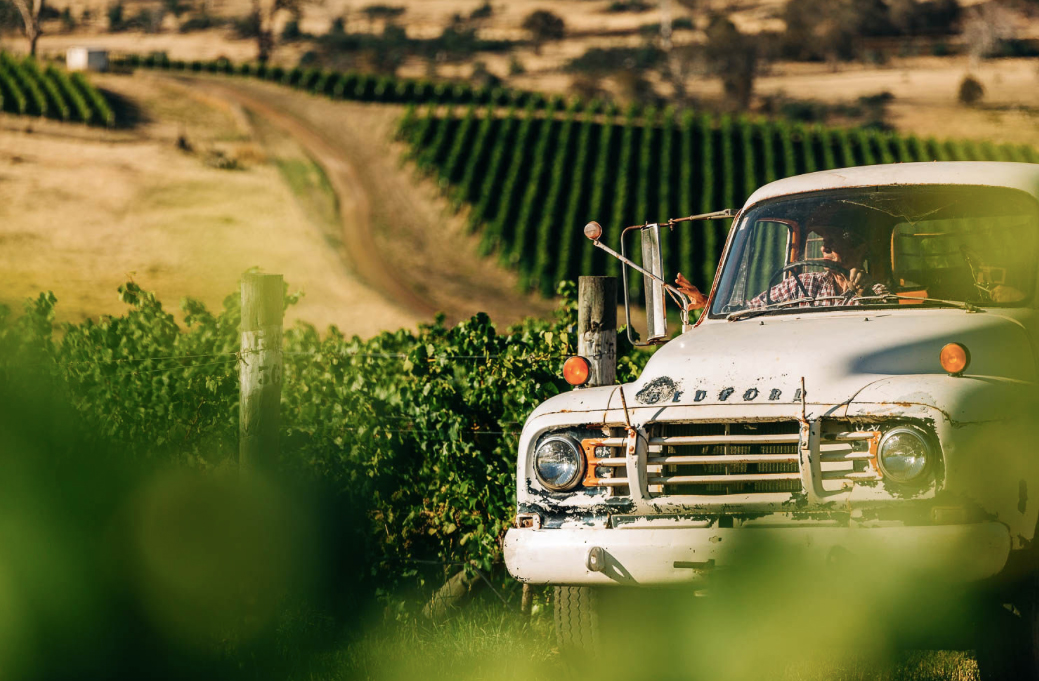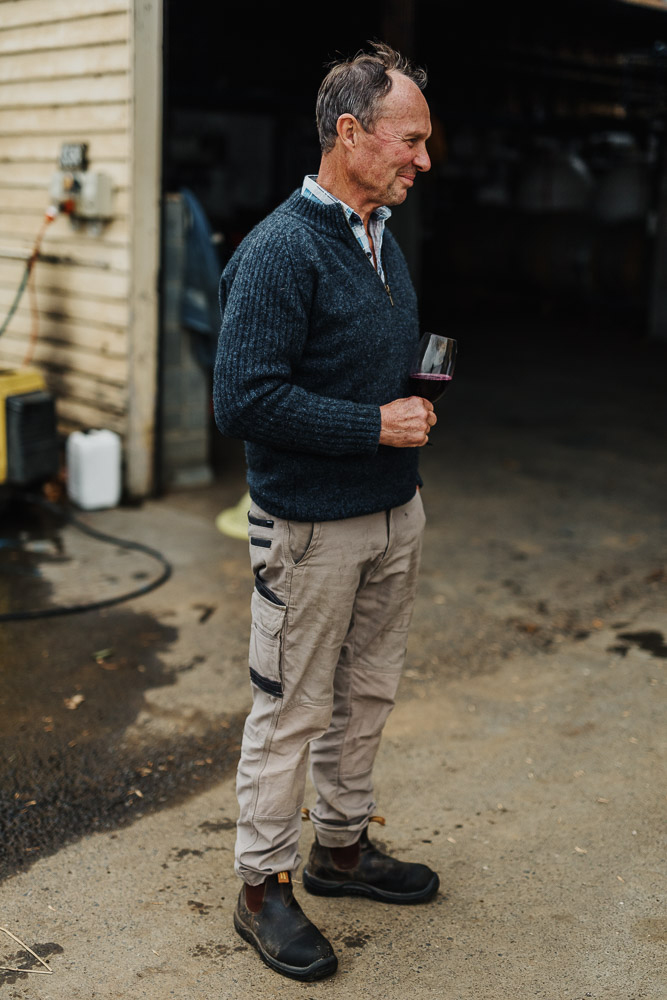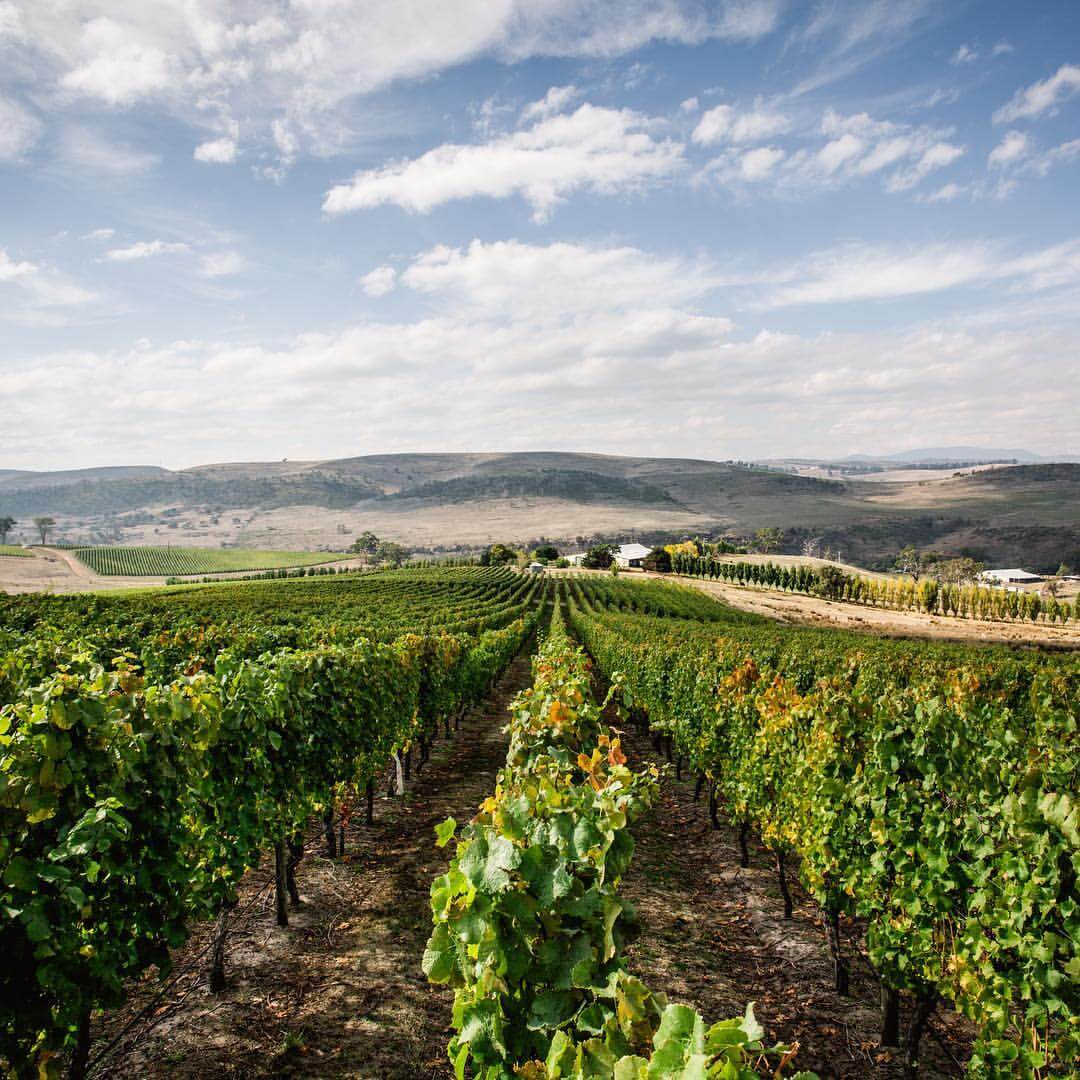Meadowbank’s Ellis family are pioneers of the modern Tasmanian wine scene, planting their vineyard in the 1970s against the best available advice. That site in the Upper Derwent Valley has validated their conviction, becoming one of the island’s most enduring and respected fruit sources. The 50-hectare vineyard supplies names like Arras, Bay of Fires and Glaetzer-Dixon (including for their 2011 Jimmy Watson win) with grapes, primarily pinot noir, shiraz and riesling. Today, the Meadowbank brand has also been reinvigorated, with the wines fine-tuned by the glittering talents of Peter Dredge, along with his own Dr Edge label, which largely centres around Meadowbank fruit.
The Ellis family trace their Tasmanian roots right back to 1827, when William Ellis landed on what was then called Van Diemen’s Land as a not-so-free settler. An enterprising spirit saw those shackles relegated, with him founding a hotel near to Hobart sometime later. Fast forward, and his descendent Gerald Ellis approached a career in imbibables from a different angle.
In 1976, Ellis started planting a vineyard on his grazing property in the Derwent Valley. Ellis wasn’t the first to put vine to soil in the modern development of Tasmanian viticulture, but he wasn’t too far off, with those early vines now some of the Apple Isle’s oldest and most revered.
The near 50-hectare vineyard is dominated by pinot noir, accounting for about half the plantings, while chardonnay occupies 10 hectares. The balance is made up of riesling, pinot meunier, sauvignon blanc, shiraz and pinot gris, with a quarter of a hectare of gamay – which was planted in 2016 along with more shiraz, pinot noir and chardonnay to increase the land under vine by 10 hectares – now in production.
Tasmania is a phylloxera-free zone, so all the Meadowbank wines are on own roots, but Ellis has his own brand of biosecurity controls in place, nonetheless. “A 7-kilometre dirt road for a driveway, within a 2,500-hectare farm, plus the odd shotgun-wielding farmer walking around… biosecurity takes care of itself.”
The Ellis property is close to the inland edge of the Derwent Valley subregion, with it experiencing more of a continental climate. “Our vineyard is located in the Upper Derwent Valley and is largely unaffected by cooling sea breezes,” says Ellis, “Being inland, we also experience large diurnal fluctuations – warm days and cool nights. The cool nights express themselves in good acid, balanced by ripe fruit characters from the warm days. The end result are wines that have great cellaring potential – particularly the rieslings, chardonnays and pinot noirs.”
Ellis notes that their long tenure on the property has given them a decent survey of how much of an “enormous” impact climate change has had, and that they are adjusting accordingly. “Since 1976, vintage has moved forward by four weeks on average, so climate change is real simply based on the rapidity of change.”
With an approach that goes well beyond the vineyard operation, Meadowbank is increasingly prepared to manage the impact of climate change, as well contributing to arresting its progress. “Meadowbank is a 2,500-hectare property of which just 50 hectares are under vine,” says Ellis. “Approximately 900 hectares is under a conservation covenant, and a further 30-hectare carbon sequestration block has been set up in conjunction with the University of Tasmania and Greening Australia. Also, we have a conservation block of Eucalyptus morrisbyi, an endemic species to Tasmania. We are also working towards being energy self-sufficient, which began with the installation of a 70-kilowatt solar system to run our irrigation pumps.”
Similarly, Ellis is working to integrate sustainable practices across their operations, including under-vine mowing to move away from herbicides, as well as employing copper and sulphur over synthetic controls. “We’re gradually moving over to more sustainable practices,” he says, “not necessarily organic, but what I call ‘sympathetic agriculture’. Sustainability for us is about a taking a balanced, holistic approach. This means looking after the land, plants, fruit, animals, people and business. It’s a long game. One eye on the season, the other on the future.”
Currently, a large portion of the fruit is allocated to Accolade Wines, which has had a long-standing relationship that has seen the grapes fill bottles for Bay of Fires, as well as being a cornerstone of Australia’s most acclaimed sparkling wine brand, Arras. More recently, Peter Dredge (a former Bay of Fires winemaker) struck up a business relationship with the Ellis family, which sees him making the Meadowbank wines alongside his own Dr Edge label (using their fruit, as well as sourcing across different subregions) at Moorilla Estate.
“We sell approximately 85 per cent of production to other winemakers and work very closely with them to deliver the best quality we can,” Ellis says. “I think we are in a fortunate position where our fruit is well recognised for its quality, and that the winemakers we sell to are all selling their wines at the premium end of the market. This is achieved by listening to winemaker’s requirements and acting accordingly.”
While the Meadowbank wines – which have been relaunched under Dredge’s stewardship to much acclaim – are a clear source of pride, the contribution that the fruit has made over the decades to the wines of others is no less of a badge of honour for Ellis.
“A lot of our fruit goes into Australia’s most awarded sparkling wines – and now the world’s top sparkling wine,” notes Ellis, referencing Arras winning the Top Sparkling Wine in Decanter Magazine’s Top 100 for 2020 – quite an achievement competing against the best of Champagne. “Meadowbank fruit speaks on our behalf… Dr Edge, Arras, Bay of Fires, Dawson & James, Domaine Simha, Kate Hill, Glaetzer-Dixon and, of course, Meadowbank. Quite the party.”





